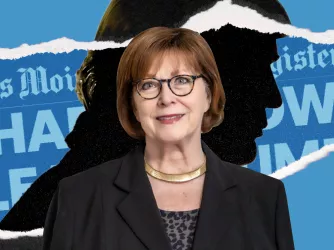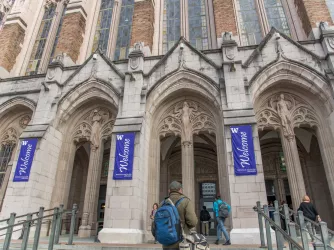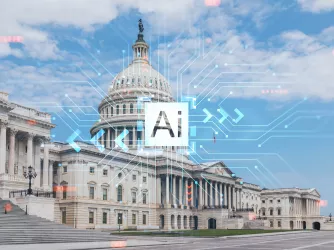Table of Contents
Ringing Endorsement of the First Amendment in University of Wyoming Court Defeat
As we reported yesterday, U.S. District Judge William Downes was unconvinced by the University of Wyoming's defense of its ban of education professor and co-founder of the Weather Underground Bill Ayers, and ordered that Ayers be allowed to speak on campus in Downes' decision yesterday afternoon.
As Adam noted, FIRE and other civil liberties advocates had reason to be optimistic about yesterday's decision after the hearing, as Judge Downes and plaintiffs' attorney David Lane dashed the credibility of the university's defense by sharply questioning the legitimacy of the threats the school cited as justification for excluding Ayers. The Casper Star-Tribune's Pete Nickeas has more in an article following the court's decision:
Downes said the evidence presented during testimony on Monday suggested that UW's decision to ban Ayers from university facilities was inspired by his past association with a "despicable" group, and not the safety concerns university officials repeatedly cited.
The judge read an e-mail in which a man said he and others would travel to Laramie to protest Ayers' visit. The university had offered it as an example of threats that prompted a UW attorney to tell Lanker that UW would not be a venue for Ayers' speech.
"Where is the threat in that?" Downes asked. "If he and other citizens are concerned and want to assemble, where is the threat?"
The judge also dismissed other specific messages received by UW officials from angry members of the public as "at most veiled and indirect" threats.
And, as a Star-Tribune editorial aptly noted today:
To Downes and other observers, it was clear that UW's decision to ban Ayers was inspired by his past and not safety concerns, which the judge called "vague" and "veiled." While UW President Tom Buchanan testified that the university received a "torrent" of "angry, hateful and venomous" e-mails and phone calls, none even approached the threat of imminent riots that might have justified canceling Ayers' speech.
The Star-Tribune also notes that Judge Downes "read from different court cases from across the country for 15 minutes—each case concluding that the threat of violence did not justify suspension of the First Amendment."
And, in a statement FIRE hopes is carefully noted by higher education's administrators across the country, Judge Downes put aside his own memories of Ayers and the Weather Underground's past activities to give this thumping vindication of Ayers' First Amendment rights:
"This court is of age to remember the Weather Underground. When his group was bombing the U.S. Capitol in 1971, I was serving in the uniform of my country," Downes said. "Even to this day, when I hear that name, I can scarcely swallow the bile of my contempt for it. But Mr. Ayers is a citizen of the United States who wishes to speak, and he need not offer any more justification than that."
UW President Tom Buchanan, in the university's press statement following the cancellation of the first of Ayers' scheduled appearances, stated that allowing a figure like Ayers to speak on campus would have "adversely impacted" the university's reputation and diminished the public's confidence in its integrity. But with the university having been trounced in the court of public opinion, and now in a court of law, the trust he sought to protect has now been badly tarnished, and the university will have far more work to do to win it back.
Ayers is set to speak in the university's sports complex tonight from 7:00 to 9:00 pm. That's the same venue in which the university had prevented student Meg Lanker from hosting him, before telling her that Ayers could not under any circumstances come to UW.
The Star-Tribune editorial may be right in saying that the content of the speech that will have taken Ayers four weeks, two false starts, and a lawsuit to deliver "will probably not be long remembered." Indeed, UW's defeat in court will be remembered far longer, and it now must prove to its students, faculty, and alumni that it respects its legal and moral obligation to uphold First Amendment rights.
An upside, the Star-Tribune notes, is that this saga represents "a teachable moment." That it does. But it's a shame that this moment for the University of Wyoming and President Tom Buchanan came at such a steep, and completely avoidable, cost.
Recent Articles
FIRE’s award-winning Newsdesk covers the free speech news you need to stay informed.

FIRE’s defense of pollster J. Ann Selzer against Donald Trump’s lawsuit is First Amendment 101

University of Washington alumni seek to revive the spirit of free inquiry

Meta’s content moderation changes closely align with FIRE recommendations
